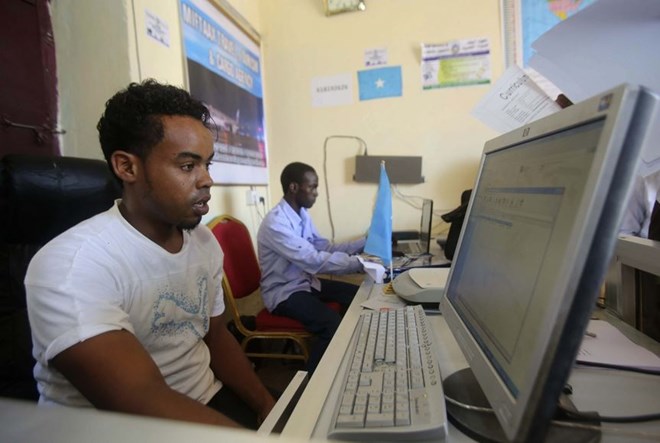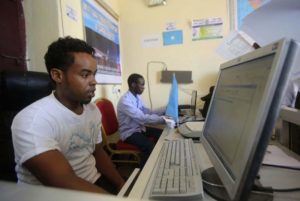In this day and age, writing an academic thesis without access to scholarly research or the internet sounds virtually impossible. Yet this is the reality experienced by many university students in Somalia, which has one of the lowest internet penetration rates in the world. The lack of digital connectivity drastically inhibits learning across the country, and can prevent the education sector from fulfilling its role as a driver of economic and social development.
In an effort to change this circumstance, the Somali Research and Education Network (SomaliREN) has brought several higher education institutions together under a single umbrella to improve connectivity in education facilities, foster digital learning communities, and promote academic content for Somali students.
Launched on July 18, the SomaliREN is currently made up of 19 institutions. It maintains its own network operations center, and has already deployed a 155 Mbit/s connection to seven universities, translating into roughly 20 Mbps of bandwidth for each institution.
The SomaliREN is part of a larger consortium of global National Research and Education Networks known as NRENs, a group of specialized internet service providers dedicated to bringing universities together and supporting the needs of the research and education communities within their respective countries. SomaliREN has adopted a formal governance structure, provided trainings for its partners, and recently announced its annual internship program, which aims to develop the skills necessary to build, operate and maintain network and systems infrastructure for Somali higher education institutions.
The initiative has benefited from financial assistance under the World Bank’s ICT Sector Support Program (Phase 2) and the European Union’s AfricaConnect 2 program, which has allowed SomaliREN to invest in internet connectivity, and provide access to the high-speed internet and open educational resources.
The potential benefits of the project go far beyond the convenience and appeal of high-speed digital connectivity. By linking the country to a global knowledge network and bringing institutions together into one learning community, the SomaliREN will significantly contribute to modernizing higher education in Somalia.
Moving forward, The Digital Development unit hopes to see the project expand beyond Mogadishu to the rest of the country, and facilitate greater collaboration among institutions within Somalia. There is also a need to extend support to secondary and even primary schools, so that young Somalis can acquire digital literacy skills from an earlier age, and be better-equipped to pursue opportunities in the digital economy.
The World Bank’s Digital Development team stands ready to continue supporting this engagement, and to identify the best strategies for delivering connectivity and learning for all.
World Bank







































